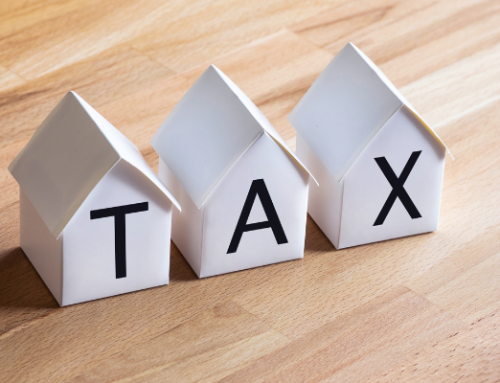Enterprise Zones (EZs) are a powerful tool for economic development, offering tax and monetary incentives as well as other benefits to businesses and nonprofits willing to invest in designated distressed areas. These incentives typically include cash incentives, tax credits, property tax abatements, sales tax exemptions, and various other financial benefits designed to lower the cost of doing business within the zone.
These incentives are especially advantageous for the real estate and construction industries. Because each state has its own program, understanding the specifics of each state’s EZ program is crucial to maximizing these benefits. Whether you are a new or existing stakeholder, leveraging these valuable incentives can offer an economic and competitive advantage while simultaneously supporting community development efforts.
What are Enterprise Zones?
Enterprise Zones are specially designated geographical areas where state and local governments offer monetary and tax incentives to encourage organizations to invest and operate. Established to stimulate economic growth, job creation, and community revitalization, these zones lower barriers to investment, making projects more feasible and profitable.
Since their inception in the U.S. during the 1980s, Enterprise Zones have evolved significantly, adapting to changing economic needs and priorities. Today, they play an important role in revitalizing communities by attracting diverse businesses and fostering sustainable development.
Potential Benefits by Industry
While any business operating within an EZ can potentially benefit, certain industries tend to gain the most from these programs due to their specific needs and the nature of the incentives offered. Here are some of the key industries that benefit significantly from Enterprise Zones:
Real Estate Development: Real estate developers benefit from property tax abatements, which can reduce the cost of acquiring and developing properties in EZs. These incentives make it more feasible to undertake large-scale development projects, including commercial, residential, and mixed-use developments. The reduced cost of property taxes and other development-related expenses can enhance the profitability of these projects. They can also potentially qualify for monetary incentives to recoup investments in real property made during the development phase.
Construction: The construction industry benefits from the increased demand for new buildings, rehabilitation, expansion, and infrastructure in EZs. Tax incentives can reduce the cost of construction materials and labor, making it more economical to build in these areas. Additionally, construction companies can benefit from increased business opportunities as more projects are initiated within EZs.
Manufacturing: Manufacturing businesses often require large investments in facilities, equipment, and labor. Enterprise Zones offer tax credits for property and equipment investments, sales tax exemptions on manufacturing equipment, and job creation credits, making these zones highly attractive for manufacturers looking to expand or establish new operations.
For stakeholders, investing in Enterprise Zones can result in long-term benefits. It has the potential to contribute to community revitalization, leading to increased property values and an improved quality of life in the area. This can improve the reputation of developers and investors involved in such projects. Additionally, successful projects can drive sustained economic growth, creating a more stable and prosperous environment for future investments.
State-by-State Updates
Each state has its own Enterprise Zone program designed to incentivize business development through various tax benefits and financial incentives. However, not all states participate in these types of programs. For example, North Carolina does not currently have a dedicated Enterprise Zone program.
This should not be confused with the Opportunity Zone program, which is a federal initiative aiming to stimulate investment in economically distressed areas through tax incentives. All three states being examined—Maryland, Virginia, and North Carolina—participate in the Opportunity Zone program. However, only Maryland and Virginia also have Enterprise Zone programs. The benefits, requirements, and eligibility criteria for these programs vary across states, reflecting each state’s unique economic strategies and goals.
Maryland Enterprise Zone (EZ) Program
Maryland has recently increased the number of designated Enterprise Zones for a total of 36 zones and seven focus areas. It also extended certain benefits to attract more businesses and investments. Key benefits of the program include income tax credits for job creation, property tax credits, and local tax exemptions. Applications for property tax credits are due annually by April 15th. Special considerations include:
- General Income Tax Credit: A one-time $1,000 tax credit for each qualified new employee filling a newly created position in an enterprise zone, or a one-time $1,500 credit for each qualified new employee in an enterprise zone focus area. The employee must earn at least 150% of the federal minimum wage. Additional eligibility requirements apply.
- Income Tax Credit for Economically Disadvantaged Employees: A three-year period tax credit for each qualified new economically disadvantaged employee, earned at $3,000 in the first year, $2,000 in the second year, and $1,000 in the third year for employees in an Enterprise Zone, and at $4,500 in the first year, $3,000 in the second year, and $1,500 in the third year for employees in a Focus Area. The business must obtain certification from the Maryland Department of Labor to claim the income tax credit.
- Real Property Tax Credit: This ten-year tax credit is applied against local real property taxes on a portion of real property expansion, renovation, or capital improvement. The amount of the credit is 80 percent of the “eligible assessment” for each of the first five taxable years, then decreases by 10 percent annually for the subsequent five years. For newly constructed qualified property that provides both office and retail space, the credit extends to 13 years.
- Real Property Tax Credit for Focus Area: This ten-year tax credit applies against local real property taxes on a portion of real property expansion, renovation, or capital improvement within a focus area. The amount of the credit is 80 percent of the “eligible assessment” for each year of the entire ten-year period. For newly constructed qualified property that provides both office and retail space, the credit is extended to 13 years.
- Personal Property Tax Credit: This ten-year tax credit is applied against local personal property taxes on new investments in personal property within a focus area. The amount of the credit is 80 percent of the “eligible assessment” for each year of the entire ten-year period.
Virginia Enterprise Zone (VEZ) State Incentives
Virginia has recently expanded its Enterprise Zone program, increasing available cash funding for job creation and property investments. The state has allocated approximately $15 million to support 45 zones across Virginia. Key benefits of the program include job creation grants and real property investment grants, both of which are cash incentives and taxable. Applications for these benefits are due annually by April 1st. Special considerations include:
- Job Creation Grant (JCG): This grant rewards companies for creating permanent full-time jobs that exceed a four-job threshold. Eligible positions can receive up to $800 per year for up to five years if they pay at least 175 percent of the minimum wage and provide health benefits. Positions paying between 150 percent and 175 percent of the minimum wage with health benefits can receive up to $500 per year for up to five years. Firms in high unemployment areas (HUAs) or those that are SWaM-certified can qualify for $500 per year for positions paying at least 125 percent of the minimum wage with health benefits. There are certain industry exclusions.
- Real Property Investment Grant (RPIG): This grant encourages investments in commercial, industrial, and mixed-use properties within enterprise zones. To qualify, an entity must invest at least $100,000 in rehabilitation or expansion projects or a minimum of $500,000 in new construction projects (excluding acquisition costs). Solar-only improvements between $50,000 and $100,000 qualify with no threshold, and incorporating solar as part of a larger project reduces the overall investment threshold by $50,000. These incentives aim to stimulate economic growth and community revitalization by lowering the costs associated with property development and job creation.
Note: An applicant can pursue both the JCG and RPIG grants for the same project if the relevant eligibility requirements are met for both grants.
Next Steps for Stakeholders
Can new investors still participate? Yes, businesses can still invest in Enterprise Zones within certain states. It is important to research and identify currently designated zones and understand the specific benefits and requirements. Remember, each program has a specific timeline for their applications.
What can existing investors do to maximize their benefits? It’s recommended that investors review current benefits annually to remain compliant with reporting requirements and potentially uncover additional tax and financial incentives. Investors will also want to stay up-to-date with any changes to EZ designations and benefits. Additionally, be aware of expiration dates and look for opportunities to expand or further invest within the zone to maximize available incentives. Finally, ensuring your accountant is aware of your project from the beginning will allow you to best explore how to maximize your financial benefit.
Enterprise Zones offer substantial tax and financial benefits and opportunities for businesses, particularly in construction and real estate. Understanding the specifics of each state’s program and staying informed about updates and deadlines are important steps for maximizing these benefits. For more detailed insights on how Enterprise Zones can positively impact your bottom line, contact Jennifer French, Partner on PBMares’ Construction & Real Estate team or Shawn Middleton, Partner, PBMares’ Enterprise Zone Segment leader.






